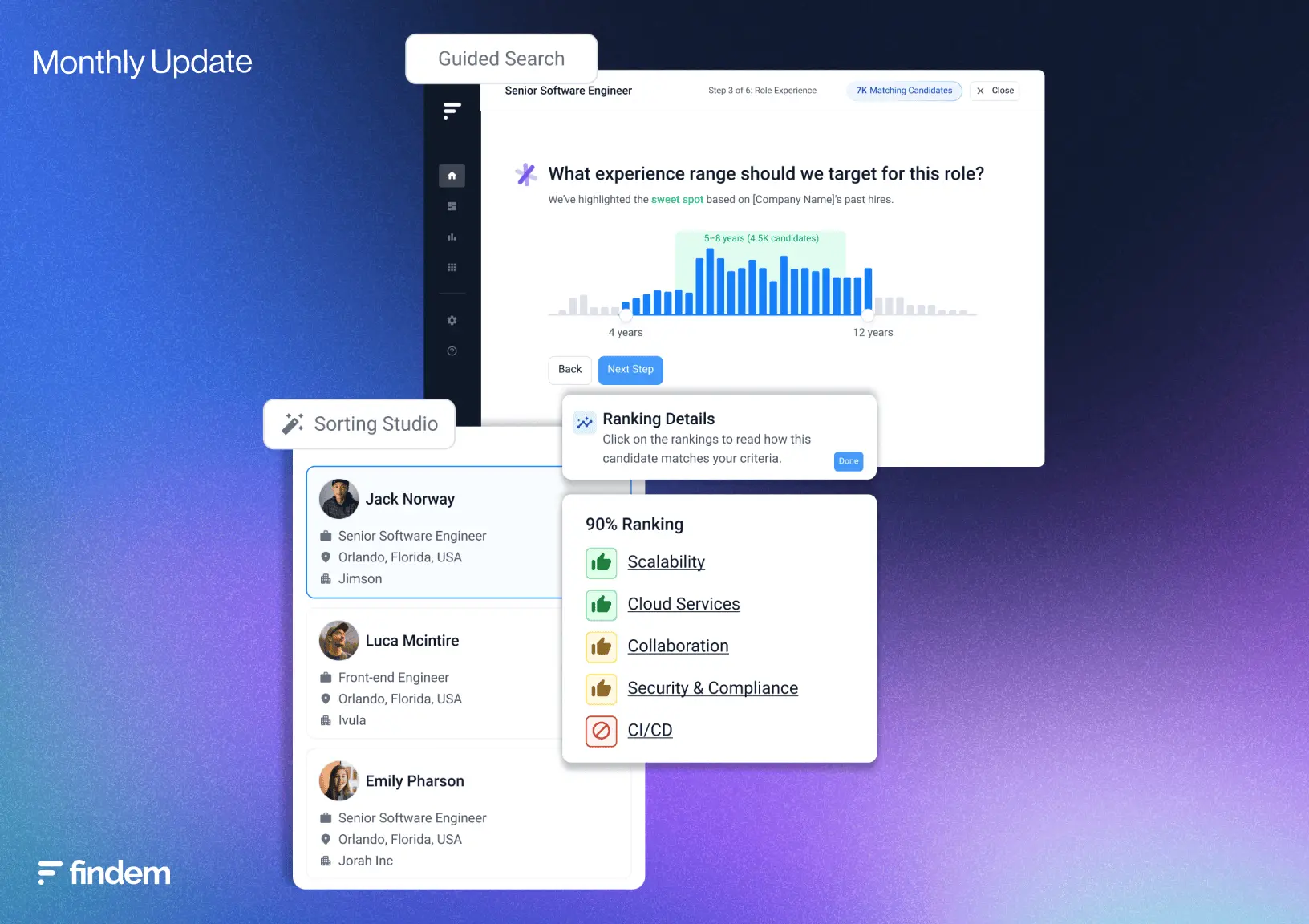.svg)

AI Now is Findem’s weekly lens into the latest developments around enterprise AI — what’s real, what’s risky, and what’s reshaping work. Each edition spotlights the stories that matter most for talent and business leaders.
As AI investment and adoption reach new heights, the enterprise landscape is shifting under the feet of talent leaders, HR, and business executives. This week’s highlights reveal a red-hot funding landscape, tough lessons from failed AI pilots, and the human impact of strategic automation. For those tasked with workforce strategy, the signals are clear: adapt with intelligence and agility.
Dozens of U.S. AI startups score over $100M in funding
What happened
At least 33 U.S.-based AI startups have raised $100 million or more in 2025, including billion-dollar valuations for key players like healthcare platform EliseAI ($250M at $2.2B valuation) and research lab Decart ($100M at $3.1B valuation). Investors are doubling down despite venture capital headwinds, with AI startups accounting for nearly two-thirds of all fundraising so far this year.
Why it matters
Firms are rapidly funneling investments into AI-driven automation, especially in healthcare, housing, and legal, shaking up competitive dynamics and validating investor faith in long-term efficiency. For enterprise leaders, this signals an urgent need to track innovation and assess both new opportunities and emerging threats as startups scale rapidly.
The signal for talent
Talent strategies must evolve. Startups flush with resources are attracting premium analytical, technical, and product talent, intensifying the race for advanced skills. Real-time talent intelligence and precise skills mapping are must-haves for winning top talent or forming strategic partnerships. How does workforce planning shift when rivals are routinely raising $100M to support AI-powered automation?
Big AI pilots are failing at the enterprise level
What happened
A new MIT report found that 95% of public generative AI pilot projects are failing to deliver meaningful ROI. The technology works, but execution, scale, and change management are breaking down as companies struggle with integration, user readiness, and coordination.
Why it matters
“Buying the model” is easy, but enterprise impact depends almost entirely on structured change management and cross-functional strategies. Leaders must beware the AI bubble: without robust pilot evaluation and employee upskilling, billions spent could deliver little value.
The signal for talent
Success relies on connecting readiness and skills data to transformation efforts. HR and L&D leaders must address user preparedness, align evolving roles, and reskill proactively to ensure AI pilots deliver results and clear paths to ROI. What’s your playbook for closing the gap between AI pilot enthusiasm and real business impact?
Salesforce cuts 4,000 jobs as AI agents take over support
What happened
Salesforce slashed its customer support headcount from 9,000 to 5,000 after rolling out AI agents that now handle half of all support conversations. CEO Marc Benioff said, “I need less heads,” pointing to the fact that Salesforce is now using AI to process around 10,000 leads weekly.
Why it matters
AI-driven automation is producing real shifts in workforce composition and cost structures. Companies can gain efficiencies with AI, but must balance reputational, cultural, and skill-related impacts as roles evolve. The reallocation of human capital from support to sales tasks illustrates AI as a strategic enabler and as a cost-cutter.
The signal for talent
HR and talent leaders must deploy dynamic skills tracking and scenario planning to guide redeployment and re-skilling. Workforce agility — powered by real-time talent intelligence and organizational DNA — is essential for managing waves of job change. How do you ensure these efforts keep pace with AI-driven transformation?
Keep track of all the signals with Findem
Enterprise AI is no longer a distant vision. It’s remaking the talent landscape now, with billions flowing into startups, hard lessons from failed pilots, and live workforce shifts at tech giants. Strategic talent leaders must double down on dynamic skills management, data-driven decisions, and forward-looking workforce strategies.
Ready to navigate AI disruption with confidence? Request a demo of Findem to learn how you can turn data into a talent advantage.


.svg)



